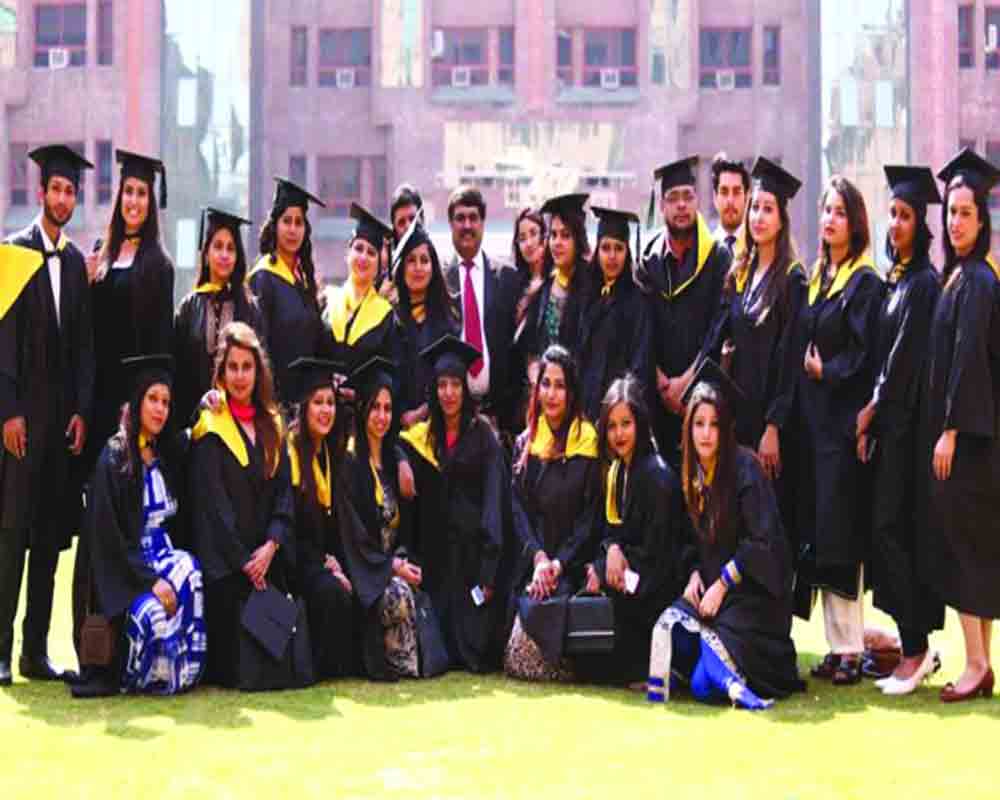ABC will promote quality, flexibility, access and equity to improve the higher education system
The provision of innovative Academic Bank of Credits (ABC) in the New Education Policy,a multi-disciplinary, skills-based, and flexible curricular structure, a Multiple-Entry-Multiple-Exit option, and experiential learning pedagogies will help actualize new opportunities for motivated learning. Now that Prime Minister Narendra Modi has rolled out ABC for implementation from the coming academic session, it has become imperative to understand how it will work and democratise our learning system. ABC will digitally store essential academic credits earned from select institutions for the award of a degree or a diploma It will ensure seamless mobility of learners among various disciplines and institutions for earning credits through courses or a combination of courses of their choice.As such, ABC will create opportunities for students’ mobility between institutions. The ABC system will perform the functions of a commercial bank with the facility for students to hold accounts. The bank will be responsible for the opening, validation, and closure of these accounts. It will facilitate verification, accumulation, transfer, or redemption of credits,and verify the credits required for the authentication of degrees.
Higher education institutions with A Grade certification from NAAC or the top 100 institutions in NIRF, or institutions with a minimum score of 675 from NBA for at least three programmes shall be eligible for registration in ABC. The credits earned by the students may be verified by the bank's educational transcripts that will be recognised by all institutions included in the consortium on ABC. The ABC may allow non-science students, say from arts and commerce streams, to take up courses in the science stream after pursuing a bridge course. It will offer Multiple-Entry-Multiple-Exit options to needy students and help integrate skills into a choice-based credit system. The ABC makes the higher education system completely student-centric, and it enables students to choose courses and institutions facilitating learning from a wide range of course coordinators and institutions. For instance, a student can be enrolled for a program in one institution (parent institution) and simultaneously be enrolled for courses of choice in multiple institutions(sister institutions) for earning credits in physical or online mode or both. This ensures enhanced integration of institutions for conducting academic activities and facilitates life-long learning opportunities. The learners have the option of studying full-time or part-time. ABC will promote quality, flexibility, and collaboration alongside access and equity to improve the efficacy of the higher education system.I am of the opinion that the responsibility of implementing ABC can be entrusted to the General Education Council - the fourth vertical under the Higher Education Commission of India.The UGC makes it mandatory for students to necesarily earn 50 per cent of credits assigned to the programme from their institutions.This implies that credits assigned for the core courses have to be necessarily earned mandatorily earned from the parent institutions. This ceiling may vary in the future upon bridging the digital divide.Another point is the seven-year maximum validity period for credit redemption. This is essential as the curricular framework and course modules will undergo drastic changes after seven years.They need to be regularly updated to ensure dynamism in the program and infuse newer concepts and developments in the domain knowledge. It is a year since the NEP was announced and it is the prime responsibility of eligible higher education institutions to help actualize the ABC so that the students enjoy its optimal benefits. The very concept of educational institutions is founded on the premise of satisfying the ever-evolving learning needs of the youth and empowering them with global competencies and skills to make them socially and economically relevant. This is the only road that will lead us to ‘Aatmanirbhar Bharat’.
(The writer is Vice-Chancellor, Central University of Punjab, Bathinda. The views expressed are personal.)
























